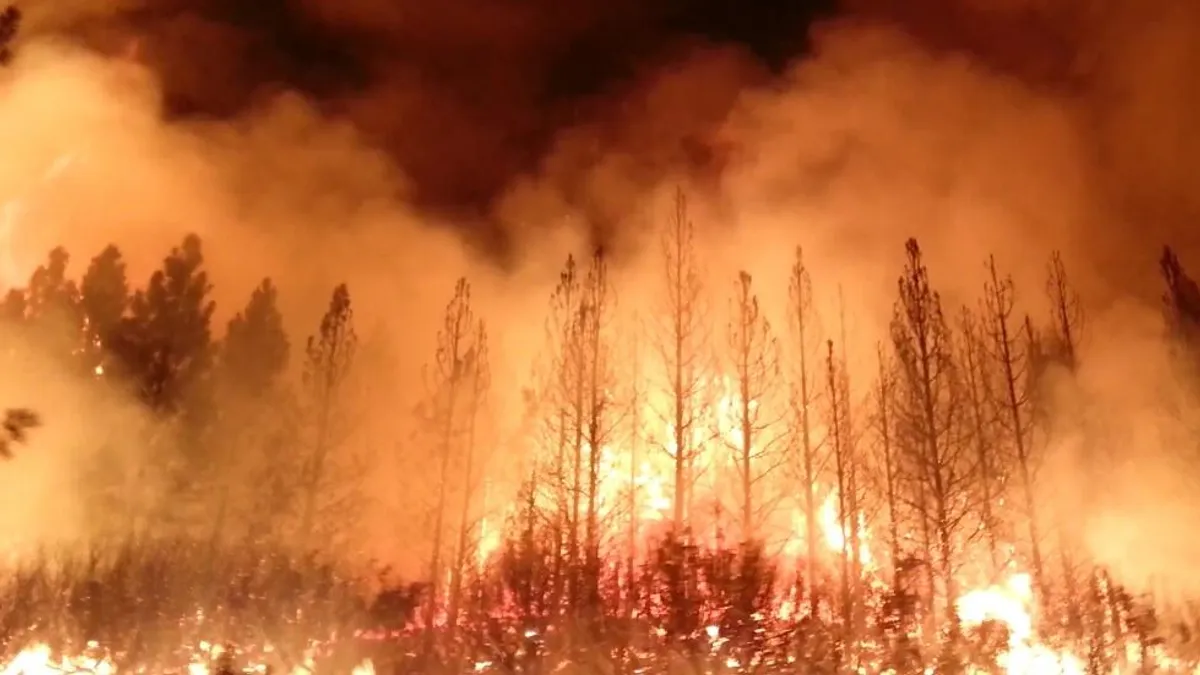Dive Brief:
- San Diego Gas & Electric this week asked the California Supreme Court to consider its arguments that customers should pick up the tab for costs related to the 2007 fires in San Diego County.
- After the California Public Utilities Commission (CPUC) denied the utility's bid to recover $379 million related to the fire, SDG&E took the case to California's Fourth District Court of Appeal, but was rejected there as well.
- In addition to arguments that utilities should be able to recover the costs of inverse condemnation liability through rates, SDG&E claims Associate Justice Patricia Benke should have recused herself from the Appeals Court decision because she sued the utility when fire destroyed a house she owned.
Dive Insight:
Financial issues have largely taken a back seat as wildfires continued. The Camp Fire was only recently contained, and killed 88. But as intense wildfires and billions in liability become California's new reality, utilities are struggling for a way forward.
SDG&E, in its petition to the Supreme Court, argues that "if privately owned utilities cannot recover the costs of inverse condemnation liability through ratemaking, their financial solvency and ability to serve all ratepayers in their service territory will be gravely undermined."
California regulators have made it clear they don't want utilities to go bankrupt — an assurance that was necessary after Pacific Gas & Electric's stock plummeted on Camp Fire liability concerns. There is legislation, which could be introduced as soon as next week, that would give some financial assurances. But it would not address inverse condemnation issues, possibly making SDG&E's Supreme Court appeal utilities' next best hope.
SDG&E says investor-owned utilities "are now caught in a legal whipsaw between two conflicting lines of decision."
On one hand, they are subject to strict liability for inverse condemnation. On the other, the CPUC determined that a utility's strict liability does not need to be considered in a rate proceeding. And the Appeals Court gave that finding its blessing, allowing the CPUC to deny recovery under a "prudent manager" standard.
SDG&E urged the state Supreme Court to hurry.
"Inverse condemnation claims against privately owned utilities are escalating exponentially as wildfires in California become more endemic and severe," the utility said in its petition.
According to SDG&E, thousands of plaintiffs have filed dozens of actions asserting inverse condemnation claims against privately owned utilities in past fires. "And thousands more inverse condemnation claims may well be filed in the aftermath of the recent Camp and Woolsey Fires," the utility warned.
In a statement to Utility Dive, SDG&E said wildfire liability "is an important statewide legal issue that deserves consideration." The utility maintains that California courts have applied inverse condemnation to privately owned public utilities in past decisions on the assumption that state regulators would permit the utilities to spread those costs through rates.
"However since the Court of Appeals has upheld CPUC’s decision to deny cost recovery, it has created a conflict with past decisions that deserves clarification," the utility said. "SDG&E is asking the California Supreme Court to address that conflict."















